Despite a challenging year, Zambian Breweries has reported strong sustainable development and impactful growth for 2019, with revenue (after excise tax) of K2.1 billion and operating profit of K332 million, an 11 percent increase on the previous year after adjusting for the sale of its Coca-Cola bottling business to Coca-Cola Beverages Africa (CCBA) in 2018.
Profit after tax was K274 million, up 27 percent compared with the adjusted 2018 figure.
The company behind the iconic Mosi and Castle lager brands, paid just under K600 million of excise tax to the government in 2019 – 12 percent more than in 2018.
“The increase in excise payments reiterates our stance that the government’s policy of stabilising excise tax rates, to the regional parity, enables the sector to reinvest, grow capacity and contribute more to the socio-economic sustainability of the country,” said Zambian Breweries Chairperson Monica Musonda.
The company’s contribution to job creation, agro-processing and manufacturing through production of Mosi, Castle, Carling Black Label, Castle Lite and affordable Eagle lagers is key to supporting local enterprises through sourcing of barley, cassava, sorghum and maize, said the company in its just-published 2019 Annual Report.
To enhance local sourcing of raw materials the company is providing a market and technology for farmers to trade, and is empowering small- to medium-scale as well as large-scale local farmers with farming inputs and yield support.
Zambian Breweries, through its cassava procurement scheme, provided a market for over 729 verified cassava farmers on the block chain platform from Luapula, Northern and Muchinga provinces of Zambia during the year.
In 2019 it bought a capped volume of 1,933 tonnes of cassava, creating farmer incomes of ZMW 2.554 million via mobile money direct transfer.
To improve the quality of cassava being farmed by the local community and to reduce risks of diseases, Zambian Breweries also partnered with the Zambia Agriculture Research Institute (ZARI) to help develop new varieties of cassava to improve cassava yields.
The company also purchased 19,332 tonnes of high quality malt barley grown on 2,750 hectares from farms as far North as Mkushi and Serenje down to Zimba.
The procurement of sorghum is an on-going development project with purchases of 1,400 tonnes in 2019 with a view to expansion as the company distributed seed to the farmers in the Southern parts of Zambia.
The BanQu block chain automated payment system used successfully in the cassava initiative was also introduced to the Manja Pamodzi recycling programme to financially empower collectors and ensure that they are paid efficiently.
Meanwhile, Zambian Breweries’ Smart Drinking programme continues to make progress and socio-economic impact on many livelihoods across the country.
Over 315 youth have been engaged directly through a Mentorship Programme, which includes workshops on responsible alcohol consumption and underage drinking.
Stakeholder engagement with internal marketing continues as a target and is set to increase responsible alcohol consumption and road safety messaging in brand campaigns, added Ms Musonda.
